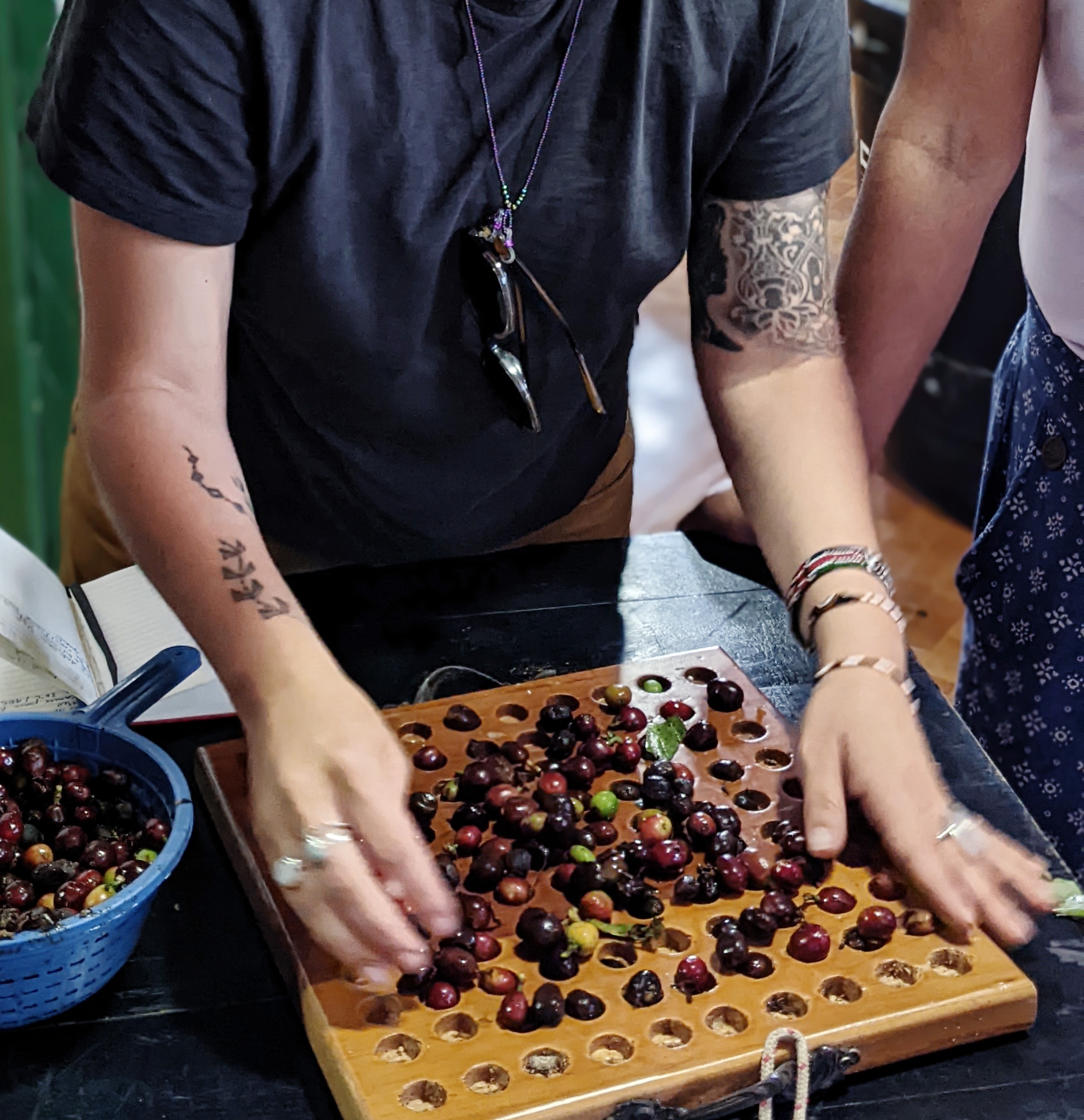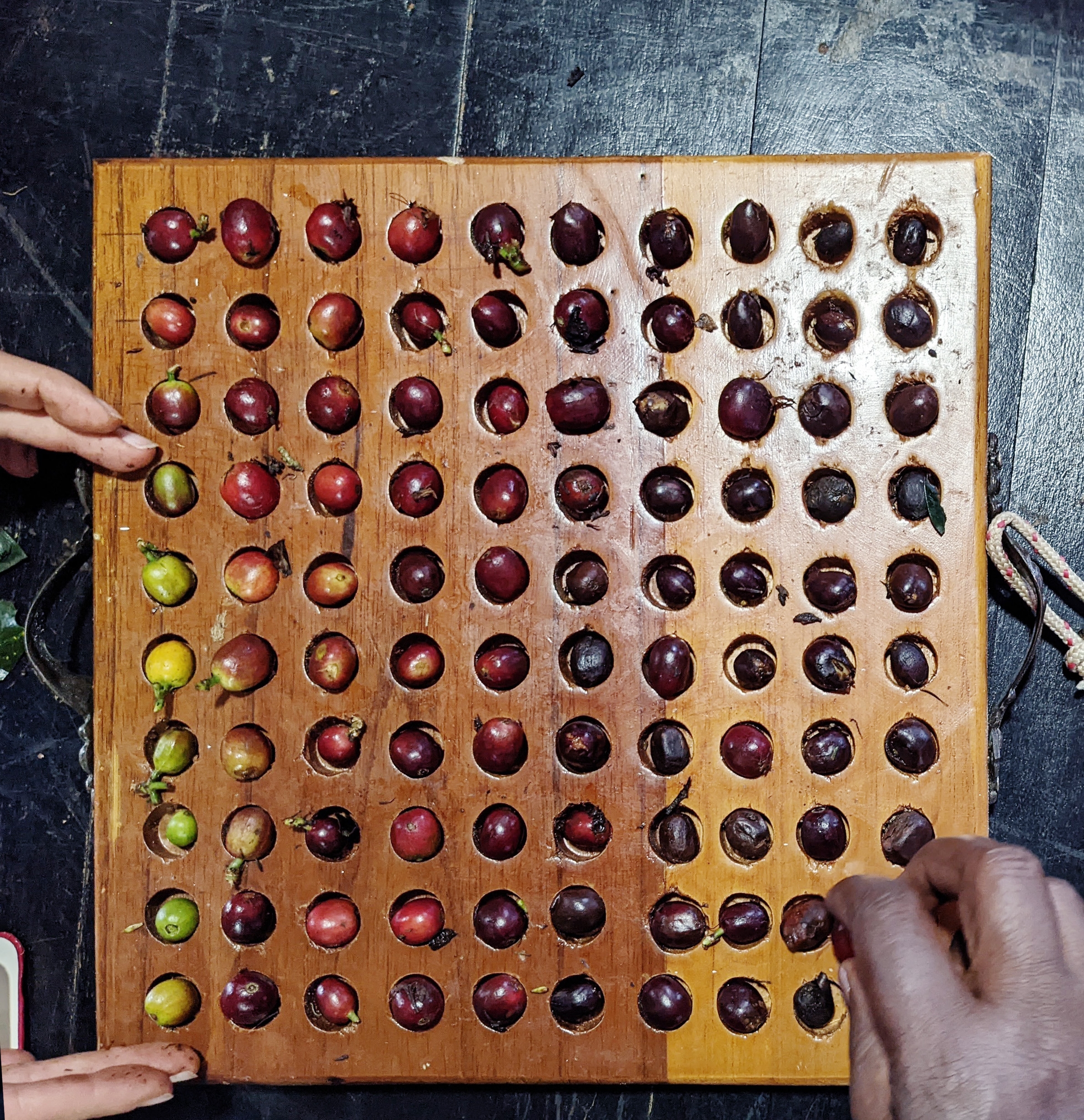From La Palma & El Tucán’s ‘Lactic’ process, to the Carbonic Maceration technique at Finca Santuario that propelled Sasa Sestic to his World Barista Championship win in 2015, Colombian producers have long led the way in experimenting with ways to modulate the flavour of their coffee.
Away from the competition spotlight, the Colombian coffee industry has also made great progress in making processing more environmentally friendly. The Colombian coffee industry may not be able to compete with Brazil in terms of research spending, but the work of Colombian researchers and producers has had a disproportionate impact on the way producers operate in other countries. Colombia is the largest producer of washed arabica, is dominated by small-scale producers, and often experiences challenging drying conditions. As such, advances made in Colombia influence producers all over the world who grow their coffee in similar conditions.
Intensifying Fermentation
Although the vast majority of coffee production in Colombia uses the traditional washed process, the country’s producers are well-known for experimenting with different fermentation techniques. In Colombia, producers favour the washed process because unpredictable rains and high humidity can make it challenging to dry the coffee, and fully washed parchment dries more quickly. As a result, the natural process, as well as methods such as black honey that leave a lot of mucilage on the parchment, are relatively rare. Producers turn to intense, controlled fermentation methods to develop fruity, winey flavours in their coffees.
Using fermentation in this way can improve the quality of lower-scoring lots, and it reduces the astringency associated with unripe coffee. Although coffee is handpicked in Colombia, the fruit collected is rarely 100% ripe.
Lucia Solis demonstrates how to calculate the percentage of ripe cherry in a lot at the Fermentation Training Camp.
‘In Colombia the issue is a lack of labour, so farm owners are not able to be so demanding of the pickers,’ says fermentation expert Lucia Solis,

